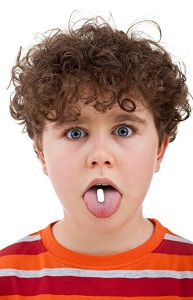 This past weekend, something happened that set the psychological world on its ear and caused many organizations and individuals to take up arms against one of the largest and most influential institutions in mental health. The new “enemy”? The fifth version of the Diagnostic and Statistical Manual of Mental Disorders (DSM), which was just approved with changes that have been vehemently opposed by many groups and individuals.
This past weekend, something happened that set the psychological world on its ear and caused many organizations and individuals to take up arms against one of the largest and most influential institutions in mental health. The new “enemy”? The fifth version of the Diagnostic and Statistical Manual of Mental Disorders (DSM), which was just approved with changes that have been vehemently opposed by many groups and individuals.
New diagnostic categories include disruptive mood dysregulation disorder, better known as temper tantrums. The forthcoming DSM also eliminates the exclusion for bereavement from depression. This means many more people will be eligible for diagnosis and will often be treated for things that fall well within the range of normalcy. The problem many people have with these changes stems from their belief that being human and having human experiences is not a disorder.
I can’t tell you how many times I have had sessions with clients who believe there is something wrong with them because they are having a perfectly normal and perfectly human reaction to life’s tragedies. Often, they are seeking a quick fix to alleviate their pain. I am really saddened at how our society—and not just in the realm of mental health—has worked to make being human undesirable. Anything less than the “ideal” is rejected.
Widening the Divide
“The Other” is a concept used to describe how individuals and groups differentiate themselves from other groups or individuals. “The Other” is seen as being inferior in some way, perhaps lacking some characteristic that normalizes. This is seen in race and cultural relationships, in bipartisan politics, and, I believe, in the use of diagnostic categories. That is not to say diagnosis is not valid at times, but the insurance-driven market of psychotherapy has created an environment in which a diagnosis is necessary for treatment, compelling therapists who accept insurance to swiftly diagnose clients.
A therapist, by slapping a label on the client, has minimized the humanity of “The Other” (in this case, the client). There is now a clear line between the therapist and the client; the therapist is the authority with the power to treat, while the client is the diagnosed or “mentally ill.” Often, treatment becomes about treating the diagnosis and less about the care of the person behind the label.
The Danger of Labels
The new additions to the DSM-V create even more opportunities to see our clients as “The Other” and less like fellow travelers on this journey of life. Noted existential psychologist Irvin Yalom states that “labels do violence to people,” and Kierkegaard said, “Once you label me, you negate me.” I, along with many others, fear the violence that will be done to those included in these new categories.
I believe the DSM-V changes can serve as a wake-up call, alerting each of us to the need for a life of celebrating our humanity … one where we learn to accept ourselves right where we are without judgment or criticism. Of course, that means we must take a stand against the dangers we are facing. Maurice Friedman said, “The great character who can awaken responsibility in others is one who acts from the whole of his or her substance and reacts in accordance with the uniqueness of every situation.” It is to those great characters that this piece is written; those who are willing to awaken responsibility in self and others. It is high time we get back to a psychology for the person—a psychology where we can practice loving others and ourselves just as we are, while always working to become that which we are capable of being.
One of the most amazing things about being human is that humans alone have the privilege of experiencing what we do—not just sorrow, suffering, pain, joy, and ecstasy, but everything in between. Let’s not waste any more time labeling and mislabeling our fellow man. Let’s begin the business of living.
© Copyright 2012 GoodTherapy.org. All rights reserved. Permission to publish granted by Lisa M. Vallejos, MA, LPC, NCC, Existential Psychotherapy Topic Expert Contributor
The preceding article was solely written by the author named above. Any views and opinions expressed are not necessarily shared by GoodTherapy.org. Questions or concerns about the preceding article can be directed to the author or posted as a comment below.

 DSM-5 Finalized: Asperger's Out, Binge Eating In
DSM-5 Finalized: Asperger's Out, Binge Eating In Understanding the Controversy Behind the Changes in the DSM-5
Understanding the Controversy Behind the Changes in the DSM-5 The Myth of 'Mental Illness'
The Myth of 'Mental Illness'